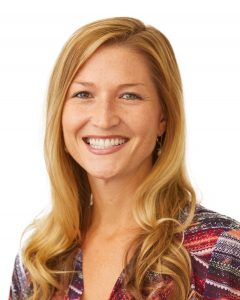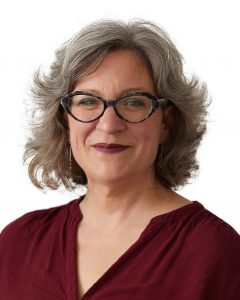Posted 2:35 p.m. Monday, Aug. 17, 2020

Global Cultures and Languages SOE-affiliated faculty link research to teaching, creating a future generation of forward-thinking teachers
People have been learning languages for thousands of years. So, it’s no surprise that theories about the best ways to teach a language have changed dramatically over that time. The pendulum has swung from the idea that language learning is completely cognitive — involving rote memorization of vocabulary and grammar — to completely social and formed through interactions with others.

Today’s language teaching research has moved the needle somewhere in the middle — raising learners’ awareness of the structural elements of a language, yet doing so in authentic cultural contexts that are meaningful for their social interaction, explains Kimberly Morris, UWL assistant professor of Global Cultures and Languages.
Morris and Assistant Professor Claire Mitchell are not only researching the best practices for language learning, they are also using those findings to inform their own teaching and sharing them with future world language teachers as School of Education-affiliated faculty members.
For instance, Morris pursued a large-scale research project in collaboration with UWL’s Language Resource Center last year where students in lower-level Spanish courses paired up with conversation partners from advanced-level courses. The research explored the primary reason conversations break down, and the results pointed overwhelmingly to a lack of vocabulary. The need for more practice learning words ultimately informed her own teaching and that of future teachers taking her courses.
The two faculty members say research has also taught them about the importance of teaching language by creating opportunities for students to engage in meaningful communication and build cultural competence. Morris and Mitchell are working with colleagues in the Department of Global Cultures & Languages to revamp Spanish curriculum with that aim. They have also recently redesigned the World Language Education Program to align closely with current best practices.
“Making it meaningful for students is the most important part of my language teaching – and I really emphasize that in my language teaching methods courses,” says Morris.
A prime example of infusing meaningful activity is Mitchell’s use of virtual-reality headsets in her Spanish classes that appeal to students’ interest in technology while giving students practice with advanced language. In her spring semester course, students used the headsets to create their own virtual reality tours of Colombia's past, present and future by pairing 360-degree photos of the country with their own narration of events they researched from specific locations. Mitchell was able to then share this tech-savvy teaching method with UWL students in her world language methodology courses.
Mitchell wants students to leave her class with more than knowledge about a particular content area.
“I want them to develop as people and have an understanding of and respect for people who come from different cultures and backgrounds and to embrace that,” says Mitchell. “It is important for students to know how to interact in a multicultural, multilingual world.”
Garcia’s research explores how teaching can be more sustainable

Merideth Garcia left her high school teaching career with a strong motivation to study the biggest challenges she faced in her classroom. Now a UWL School of Education-Affiliated faculty member, Garcia is not only researching some of these issues, she is sharing her findings at national conferences and with future teachers in her classroom.
Garcia ultimately wants to make teaching a more sustainable profession. Her work is needed. Wisconsin and the nation are both grappling with a K-12 teacher shortage.
Among other topics, her research explores how everyday use of cell phones and laptops in classrooms can both support and derail instruction. She shares activities with future teachers and fellow educators that can bridge students’ interest in writing on social media with writing instruction required to complete English classes.
